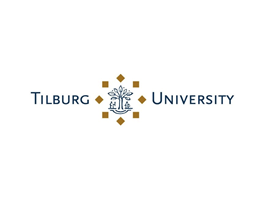Speech Technology: Charting New Futures
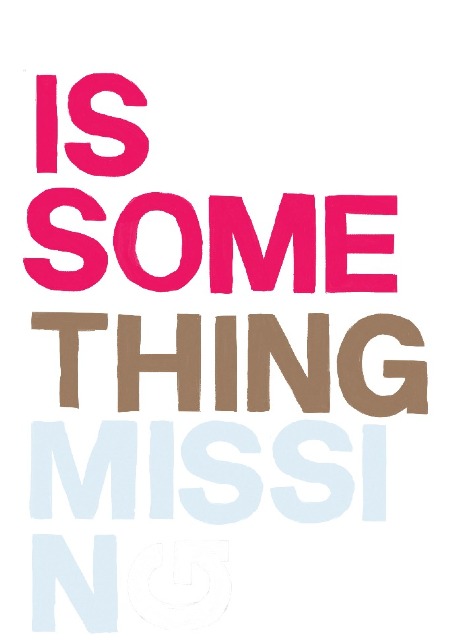
What is speech technology now and what can it become?
Join this five-day journey designed for the innovators, the dreamers, and the hands-on learners. Dive into a dynamic curriculum that blends the arts, ethics, design and technology. Engage in stimulating discussions and thought-provoking lectures. Experience a unique convergence of human-centered design and futuring, opening new horizons in how we think about and interact with technology.
What will you learn?
-
Foundational knowledge: Grasp the core principles of speech technology, gaining insights into its current landscape and future potential.
-
Creative application: Creatively apply speech tech principles through engaging activities.
-
Futuring skills: Develop skills in future trend forecasting and scenario planning. Anticipate and shape the future of this field.
-
Design thinking: Explore speculative design to materialize your ideas. Transform abstract concepts into tangible prototypes for articulating and visualizing tomorrow’s of speech technology applications.
-
Ethical insights: Gain understanding of the ethical implications in speech tech. Explore the balance between innovation and ethical responsibility.
-
Collaborative synthesis: Bring together your learnings to collaboratively craft a manifesto for inclusive speech interfaces, embodying a collective vision for the future of speech tech.
How will you learn it?
-
Engaging lectures and discussions by field leaders.
-
Hands-on lab work for practical experience.
-
Collaborative group activities and scenario mapping workshops.
-
Inspirational guest speakers and panel debates.
Don't miss this chance to be part of a community redefining the intersection of technology, ethics, and the arts. Apply now and shape the conversation on the new era of technological innovation!
This summer school is connected to the following programmes:
Msc New Media Design (Tilburg University)
Futures of Europe (futuresofeurope.org)
Practical information
|
Dates & location
|
3 - 7 June 2024 |
|
Level
|
Undergraduates, graduates, PhDs and practitioners
No prior knowledge of the topic is required.
|
|
Fee
|
Our summer school adopts a proportional fee structure, which amounts to 1.5% of the per capita Gross Domestic Product (GDP) of the student's country of residence. However, this fee is subject to a maximum limit of €250.
For instance: A student residing in Ukraine would be charged a fee of €75. This figure is calculated as 1.5% of Ukraine's GDP per capita in 2024, which is €5,027 ($5,530) . Conversely, a student from the Netherlands would pay a fee of €250. Although 1.5% of the Netherlands' GDP per capita in 2024 (€60,000) would ordinarily amount to €900, the fee is reduced to €250 to adhere to the maximum cap. |
|
Academic coordinators
|
Dr. Matt Coler, University of Groningen
Dr. Simone Ashby, Tilburg University |
|
Contact
|
speechtechsummerschool@rug.nl |
Requirements
This program is designed for anyone interested in the topic. It is an entry-level summer school for all. No prior knowledge is required.
We predict the students from some disciplines may be particularly interested. In order of relevance:
-
Emerging Tech and Innovation Studies: Those involved in broader fields of emerging technology, innovation studies, or science and technology studies will find the course's focus on the future implications and ethical considerations of speech technology particularly relevant.
-
Human-Computer Interaction (HCI) and Responsible User Experience (UX) Design: Students and professionals in HCI and UX Design programs will benefit from exploring how speech interfaces can enhance user experience and accessibility in technology design. The course provides practical examples of user-centered design principles in speech technology applications.
-
Computer Science and AI students: Ideal for those enrolled in BSc or MSc in Computer Science, particularly with a focus on Artificial Intelligence. This summer school offers a reflection on how speech technology is developed and integrated into AI systems, providing valuable insights for both theoretical research and practical application.
-
Linguistics and Phonetics students: Students in Linguistics and Phonetics will find this summer school bridges the gap between theoretical linguistic models and their application in speech synthesis and recognition, offering a unique perspective on the intersection of language and technology.
-
Cognitive Science and Psychology: For those in Cognitive Science or Psychology, especially those focusing on human-computer interaction, this summer school offers topics of interest.
It is expected that the participants have a sufficient command of the English language to actively participate in the discussions and to present their own work in English. Some programming skills would be an asset but this is not a requirement.
Course schedule
Day 1: Introduction to Speech Tech
Morning Session:
-
Interactive introductions and framing of the summer school.
-
Mini-lecture on manifestos and their importance in shaping technology.
Methodology: Combination of short lectures and interactive group discussions.
Afternoon Session:
-
Hands-on activity exploring basic speech recognition and synthesis tools.
-
Group discussions on the evolution and future of speech technology.
-
Methodology: Practical lab work and collaborative discussions.
Day 2: Prehearsing futures
Morning Session:
-
Interactive lecture on uncertainty and the future of interactive speech interfaces.
-
Guided brainstorming and breakout activities
Methodology: Interactive lecture followed by group activities and brainstorming.
Afternoon Session:
-
Continuation of future scenario creation and discussions.
Methodology: Group work and creative scenario mapping.
Day 3: Speculative design in Speech Tech
Morning Session:
-
Introduction to speculative design in speech technology.
-
Tangible futures activity: creating speculative artifacts or prototypes.
Methodology: Interactive lecture followed by hands-on prototyping and design.
Afternoon Session:
-
Showcase and critique of speculative artifacts.
Methodology: Presentation and peer review.
Day 4: Ethical considerations in Speech Technology + Wild ideas about experiment design
Morning and Afternoon Sessions:
-
Workshop on ethical considerations.
-
Activities on inverted assumptions and what-if scenarios in speech tech.
-
Hands on workshop on experiment design, including a real-life interactive taste-testing experiment.
Methodology: Workshop, group activities, and critical discussions.
Day 5: Synthesis and manifesto
Morning Session:
-
Recap of the week and integration of learnings.
-
Manifesto Sprint: Collaborative creation of a united manifesto.
Methodology: Group collaboration and creative writing.
Afternoon Session:
-
Presentation of the final manifesto.
-
Closing ceremony with reflections and feedback.
Methodology: Group presentations and discussion.
Learning outcomes
After this summer school you will be able to:
-
Explain the fundamentals of Speech Technology: Clearly articulate the underlying principles, mechanisms, and potential advancements in speech recognition and synthesis systems.
-
Integrate ethical and human-centered design in Speech Tech: Assess and incorporate ethical considerations and human-centered design approaches in the development and evaluation of speech technology applications, ensuring inclusivity and fairness.
-
Conduct futuring and scenario planning for speech tech: Employ futuring and scenario planning methods specifically tailored to speech technology, enabling you to anticipate, discuss, and prepare for various future developments and challenges in the field.
-
Apply problem-solving in tech design: Demonstrate the ability to creatively address challenges in technology design, particularly in integrating speech technology into diverse applications, through ideation, prototyping, and critical evaluation.
Introduction to lecturers
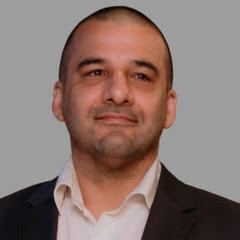
Matt Coler is an Associate Professor of Language & Technology and the Director of the MSc Voice Technology at the University of Groningen Campus Fryslân. He is also Vice Chair of the COST Action Language in the Human-Machine Era (LITHME). Matt’s current research is dedicated to speech technology for small languages. He also works on audition, perception, and indigenous Andean languages.
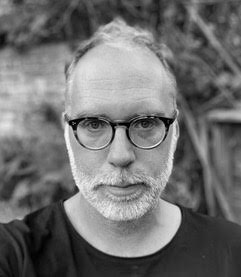
Julian Hanna is Associate Professor in Culture Studies at Tilburg University. His research focuses on critical intersections between culture, politics, and technology. He is currently working on speculative methods in education, including a project about possible futures around art and AI. His latest book is The Manifesto Handbook: 95 Theses on an Incendiary Form (Zero Books, 2020), and his next book, Island, will be published as part of Bloomsbury’s Object Lessons series in September 2024.
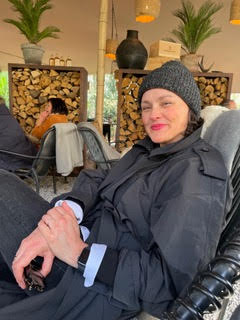
Simone Ashby is an Assistant Professor in New Media Design in the Department of Communication and Cognition at Tilburg University, where she teaches Human Centered Design, Rapid Prototyping, and Responsible UX Design. She is also a co-founder of the multidisciplinary Futures of Europe research group. Simone holds a master's degree in linguistics from the University of Colorado at Boulder, and a PhD in Computer Science from University College Dublin. In addition to specializing in UX design, she has worked in the public and private sectors (e.g. Microsoft, Oxford English Dictionary) as a speech scientist and computational linguist, dialectologist, and lexicographer. Simone's current research focuses on the use of participatory speculative design methods and leveraging collective intelligence to help people become more connected and empowered in their communities.
Application procedure
To apply, kindly fill out the online application form. Please note that you will be asked to upload the following documents:
-
A one paragraph motivation letter in which you (a) introduce yourself and your research interests; (b) mention what part of the summer school appeals to you the most and why; (c) let us know what you hope to achieve by attending the summer school
Please apply before 30 April 2024. Selected participants will be informed by 7 May 2024.
Partners
